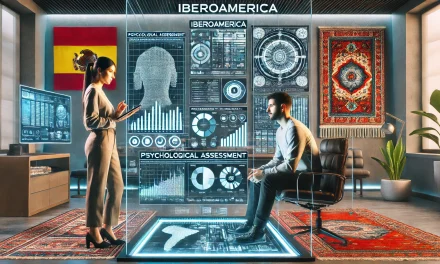
Climate change and mental health

Olimpia Petzold-Rodriguez
Climate change is defined as changes in temperatures and weather patterns for a sustained time.
Some of the effects of this change are the rise in temperature, devastating storms, species disappearance, an increase in droughts, and the ocean level. This results in food shortages, health risks, poverty, and displacement of the affected populations. (United Nations, n.d.).
The previously mentioned consequences touch the mental health of people who live in the directly affected areas and influence the psychological well-being of those from a more distant geographical position with concern for the suffering of those close to the devastating consequences of climate change. In addition, fear and uncertainty for the future are presented since natural disasters are beyond the control of human beings. Therefore, anyone could be impacted in the future by similar situations.
Extreme natural events, such as floods, tornadoes, earthquakes, forest fires, and hurricanes, can cause depression and post-traumatic stress disorder in people (Beaglehole, Mulder, Frampton, Boden, & Bell, 2018). On the other hand, anxiety accompanied by anger, helplessness, and guilt is a common aspect of children and young people today concerning this reality facing the planet (Hickman et al., 2021).
Based on the above, it is essential to apply tools to manage the thoughts and emotions triggered by the climate crisis so that mental health is not affected.
Here are some ideas that might be useful.
Be aware of your emotions: Validating what you feel is the first step to accepting and regulating them better so that your actions include respect for others and contribute to achieving the desired goal.
Be mindful: While it is crucial to take action to fight climate change. It also doesn’t help to overwhelm your mind with catastrophic thoughts about the end of the world—the practice of breathing exercises, meditation, and walking in nature help to focus on the present, enjoying what you have now.
Take responsibility and eliminate the blame: Blaming yourself for the consequences of climate change and feeling that you are the only one who must solve this situation is a weighty burden. Value your daily actions to care for the planet; remember that this is everyone’s job.
Educate yourself on the subject: The foundation for learning about something new and implementing changes is education. This includes making known the causes and effects of climate change based on scientific evidence. It starts from your home, covering the other social circles, such as work and friends—keeping in mind that the example is one of the most effective ways to influence the behavior of others.
Connect with others: When we belong to groups that share our same ideals, we feel accompanied and motivated, and it is easier to organize activities to fight against climate change.
Take concrete actions: Take actions that may seem simple and small but are significant steps to care for the planet. For example, consider using the product recycling system, changing the way you get around (carpooling, public transportation, or walking or biking), reducing/eliminating the use of plastic, and planting trees. These actions reinforce positive emotions and the sense that you are explicitly contributing to your goal, thus reducing your anxiety.
References
Beaglehole, B., Mulder, R., Frampton, C., Boden, J. N.-H., & & Bell, C. (2018). Psychological distress and psychiatric disorder after natural disasters: Systematic review and meta-analysis. The British Journal of Psychiatry,, 716-722. doi:10.1192/bjp.2018.210
Hickman, C., Marks, E., Pihkala, P., Clayton, S., Lewandowski, E., Mayall, E., . . . Mellor, C. (2021). Climate anxiety in children and young people and their beliefs about government responses to climate change: a global survey. The Lancet, e863-e873. https://doi.org/10.1016/S2542-5196(21)00278-3
Naciones Unidas. (n.d.). Naciones Unidas- Acción por el clima. Retrieved from Naciones Unidas : https://www.un.org/es/climatechange/what-is-climate-change.
doi: 10.30849/psinteram111 | Descarga la versión PDF del artículo





















